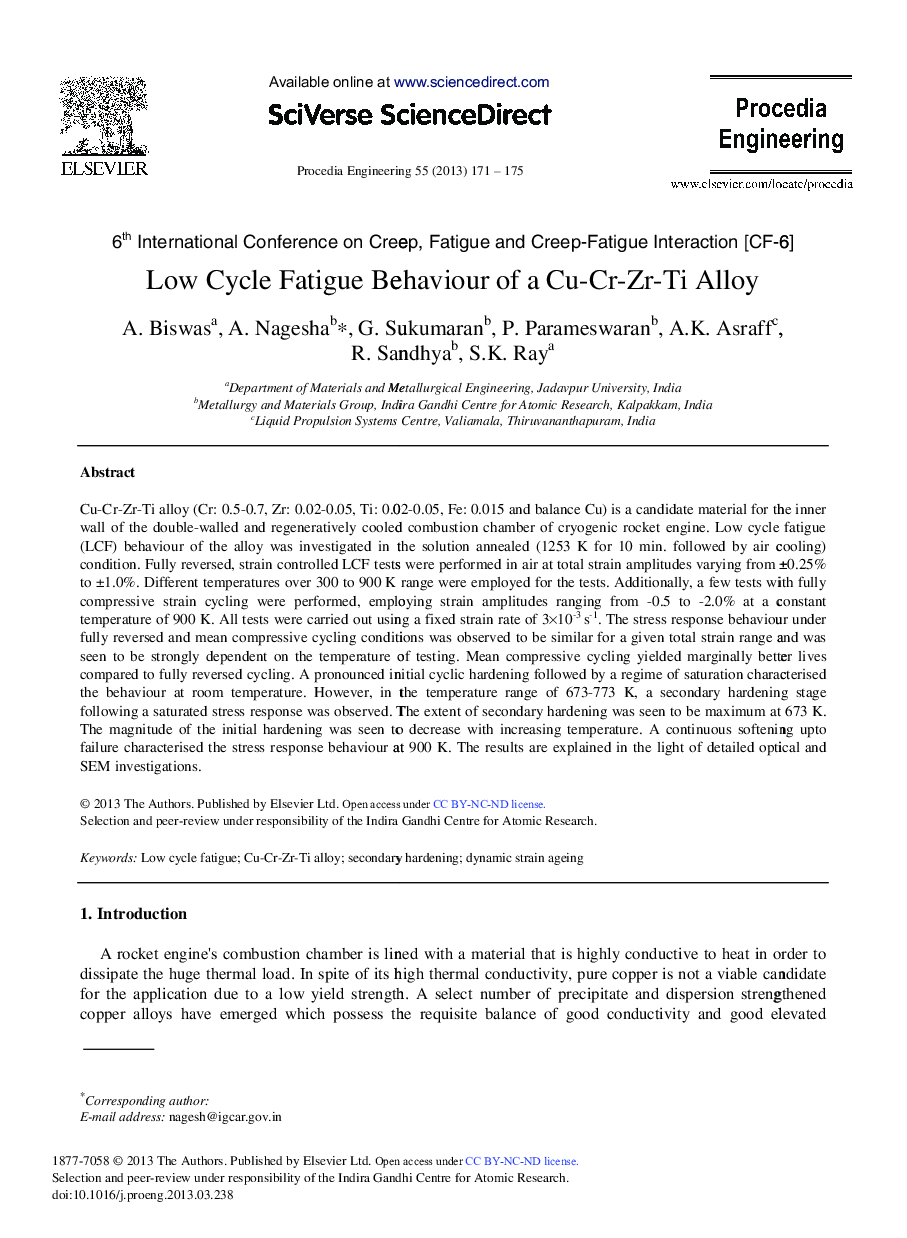| Article ID | Journal | Published Year | Pages | File Type |
|---|---|---|---|---|
| 860476 | Procedia Engineering | 2013 | 5 Pages |
Cu-Cr-Zr-Ti alloy (Cr: 0.5-0.7, Zr: 0.02-0.05, Ti: 0.02-0.05, Fe: 0.015 and balance Cu) is a candidate material for the inner wall of the double-walled and regeneratively cooled combustion chamber of cryogenic rocket engine. Low cycle fatigue (LCF) behaviour of the alloy was investigated in the solution annealed (1253 K for 10 min. followed by air cooling) condition. Fully reversed, strain controlled LCF tests were performed in air at total strain amplitudes varying from ± 0.25% to ± 1.0%. Different temperatures over 300 to 900 K range were employed for the tests. Additionally, a few tests with fully compressive strain cycling were performed, employing strain amplitudes ranging from -0.5 to -2.0% at a constant temperature of 900 K. All tests were carried out using a fixed strain rate of 3 × 10−3s−1. The stress response behaviour under fully reversed and mean compressive cycling conditions was observed to be similar for a given total strain range and was seen to be strongly dependent on the temperature of testing. Mean compressive cycling yielded marginally better lives compared to fully reversed cycling. A pronounced initial cyclic hardening followed by a regime of saturation characterised the behaviour at room temperature. However, in the temperature range of 673-773 K, a secondary hardening stage following a saturated stress response was observed. The extent of secondary hardening was seen to be maximum at 673 K. The magnitude of the initial hardening was seen to decrease with increasing temperature. A continuous softening upto failure characterised the stress response behaviour at 900 K. The results are explained in the light of detailed optical and SEM investigations.
